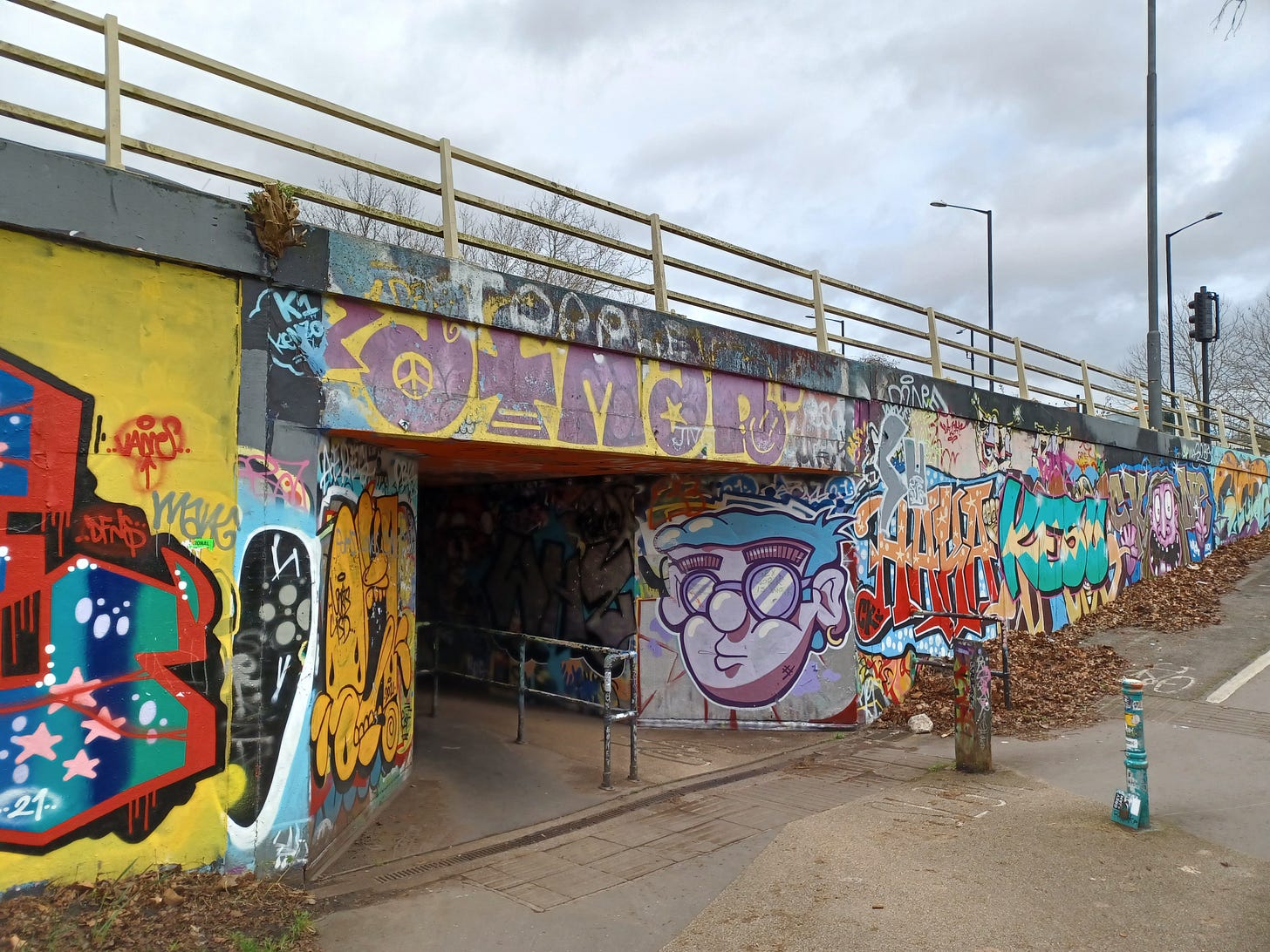
This article in the local media raises some interesting questions as to what constitutes public space and what's actually private space masquerading as public, access to which comes with what can best be described as 'terms and conditions': Questions raised over public space in Bristol following phone ban ‘fiasco’ - Alex Seabrook | B24/7 | 8.11.23. What prompted the questions was the appearance of signs across the Temple Quay area of central Bristol shown above, appearing to ban photography.
With the amount of 'regeneration' taking place in Bristol at the moment, much of the 'public space' being created will actually be privately owned with a fair amount of subtle, and sometimes not so subtle, curating being applied as to who can and can't access that space. From the point of view of the developers, the land owners, the corporations renting space in these developments, the chain shops, cafes and restaurants offering their wares, food and drinks, those accessing the space would ideally be people working there or those who've come to spend money. Basically, they want consumers and workers, everyone else can expect to have to somehow justify their presence.
Those coming in to simply chill out in whatever open space is provided but have no intention of spending anything will be seen as potentially problematic. Of course, if they're reasonably well dressed and attractive, they may be seen as adding to the 'atmosphere' of the space so their presence may well be tolerated. If however, the non-spenders are further out or beyond the margins of what's deemed acceptable in what to all intents and purposes is a corporate space, they can expect to be harassed by the privately employed security guards and quite possibly, the cops as well. Should for any reason, people wish to have a protest or a picket in any of these corporate 'public' but not really public at all spaces, they'll find out pretty swiftly how private they actually are!
These 'regenerated' spaces are essentially, the privatisation of the commons. They're about promoting a particular vision of what urban living, working and consuming in a corporate dominated world should be about. They are increasingly likely to be spaces that require some form of digital authorisation to enter. That's the future on offer if you like soulless towers, plazas, shops and eateries which could be pretty much anywhere in the so called 'developed' world. They run counter to the socially and visually richer, but also, sometimes messier environment that comes as a result of a more organic pattern of growth in the city.
These sanitised, corporate urban spaces are ultimately a means of exercising social control. They're a way of sifting out who is considered 'desirable', and who is considered to be problematic. Those deemed to be problematic are kept away by various means from these corporate spaces. This ranges from kids on skateboards, non-spenders and protesters all the way through to those with mental health and addiction issues and the homeless. Many of the latter are people who at the moment, the authorities want to 'contain' in certain areas of the city that are deemed to be of little commercial worth.
While those deemed to be acceptable in these 'regenerated', sanitised corporate spaces are pretty much free to do as they want, a fair few people find themselves shut out and confined to their own areas. They range from the bored, frustrated kids in the peripheral estates such as Hartcliffe through to those with addiction and mental health issues who can be encountered on the streets in places like Stapleton Road in Easton or Turbo Island in Stokes Croft. People who are falling or have have fallen through the increasingly fragile safety net we have in a broken and dysfunctional society. Out of sight, out of mind and left to fester.
Such is life in our polarised and divided cities, because it's not just Bristol that's afflicted by this, it's pretty much everywhere in the so called 'developed' world. The question is, how much longer can this sanitised, corporate vision of urban life hold out against the anger of the growing number of people they marginalise, exclude and dispossess before something gives? Welcome to your dystopian future...





